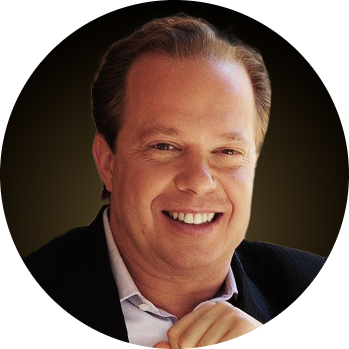
Joe Dispenza, born in California in March of 1962, is an American educator, researcher, bestselling author, corporate consultant, and lecturer who focuses on neuroscience, has contributed to several best-selling books and documentaries in his field and is widely recognized as a dynamic contributor in various fields including epigenetics and quantum physics.
Having been featured in award-winning documentaries, Dispenza’s work revolves around the themes of self-healing, personal transformation, and the power of the mind, contributing to the repute of his in-depth workshops and lectures that teach people how to rewire their brains and recondition their bodies to make lasting changes.
The chiropractor who chose to heal his 6 compressed vertebrae with his mind over surgery after a cycling accident, advocates to combine scientific research with spirituality, and his teachings focus on harnessing the potential of the human brain for healing and personal development, drawing a diverse international following and equally diverse sentiments from the public view.
Before immersing in such sentiments, let’s first dive deeper into what Dr. Joe Dispenza, is most known for:
Bestselling Author and Publications:
Combining Neuroscience and Spirituality:
Meditations and Lectures:
Research and Collaborative Studies:
Online Presence and Digital Content:
Coherence Healing:
Biosyntropy Supplements:
Corporate Training Program - NCS (NeuroChangeSolutions):
Transformation Through Elevated Emotions:
Unlocking the Power of the Mind:
Extensive Research and Practical Application:
Positive Impact on Personal Development:
Personal Transformation and Effective Techniques:
Empowering Knowledge and Inspiring Speaker:
Concerns Over Claims:
Lack of Scientific Validation:
Questionable Qualifications:
Recognition of Personal Growth Benefits:
Appreciation for Practical Techniques:
Understanding the Mind-Body Connection:
Varied Experiences and Outcomes:
Dr. Joe Dispenza's work is a blend of science, spirituality, and self-improvement techniques.
While some view his work as groundbreaking, others approach it with caution, demanding more scientific validation.
The positive public remarks about Joe Dispenza revolve around the transformative power of his teachings, the practical application of his research, and the profound personal changes experienced by individuals who engage with his methods.
The skepticism around Dispenza’s methods and teachings centers around the absence of exact scientific data, the potential for misinterpretation, and oversimplification of complex concepts.
The balanced perspectives reflect a recognition of both the potential benefits and the limitations or criticisms of Dispenza's work, emphasizing the importance of a critical and informed approach to related methods and teachings.
Nonetheless, his contributions continue to spark interest and debate in fields concerning the human mind and its potential for transformation.
Your review is like a legacy, so if you liked this public commentary review, great - leave a good star rating and if not, then leave a poor rating - but good or bad, please leave a comment and let others know what you think in the ratings, review and comments section at the bottom of this page.
How does Dr. Dispenza's approach integrate modern science with ancient practices?
Dr. Dispenza's work attempts to bridge the gap between modern science and ancient wisdom.
He integrates neuroscience and quantum physics concepts with traditional practices like meditation and mindfulness.
This fusion aims to provide a scientific basis for the transformative power of ancient techniques, such as visualization and focused intention, in altering one's state of consciousness and physical reality.
What role does the concept of 'neuroplasticity' play in Dr. Dispenza's teachings?
Neuroplasticity, the brain's ability to reorganize itself by forming new neural connections, is a central concept in Dr. Dispenza's work.
He teaches that through practices like meditation and visualization, individuals can rewire their brains, potentially leading to changes in thought patterns, behaviors, and even physical healing.
How does Dr. Dispenza address skepticism and criticism of his methods?
Dr. Dispenza acknowledges the skepticism and criticism of his methods, often emphasizing the importance of personal experience and subjective transformation.
He encourages individuals to try his techniques and observe the results for themselves, positioning personal transformation and anecdotal evidence as key indicators of his methods' effectiveness.
In what ways do Dr. Dispenza's teachings promote self-empowerment?
Dr. Dispenza's teachings focus on self-empowerment by encouraging individuals to take control of their thoughts and emotions.
He advocates for the idea that people have the power within themselves to change their mental states, health, and life circumstances, which can lead to a greater sense of personal agency and empowerment.
Are there any scientific collaborations or research projects that Dr. Dispenza is involved in?
Dr. Dispenza has been involved in various research projects and collaborations, particularly around the effects of meditation on the brain and body.
He claims to have collected a significant number of brain scans and heart-rate measurements from his workshop participants to study the effects of meditation.
What kind of community or following has Dr. Dispenza built around his teachings?
Dr. Dispenza has built a large and diverse community worldwide, consisting of individuals who follow his teachings and practices.
This community often shares experiences and testimonials, creating a supportive network for those engaged in his methods.
The community aspect is a significant part of the appeal and effectiveness of his programs for many individuals.
References:
The sourcing of information on Joe Dispenza from the public domain is done through a variety of portals and methods online i.e Academic Platforms (Google Scholar, ResearchGate, Academia). Professional Networking Sites (LinkedIn). Book Websites (Amazon, Goodreads, Barnes & Noble). Media Outlets. Podcasts (Spotify, Apple). Social Media Platforms (Twitter (X), YouTube). Public Speaking Conferences (TED Talks). Blogs & Personal Websites. Forums & Discussion Platforms. Web Search Engines.
Inspiring thoughts